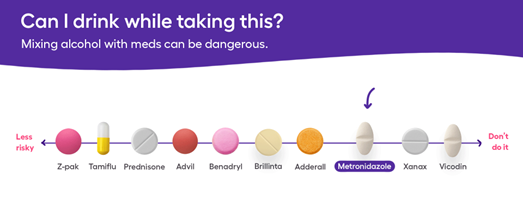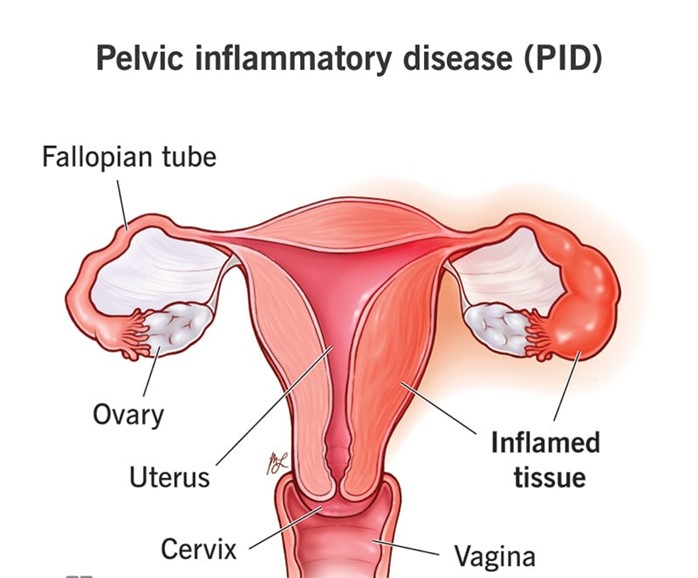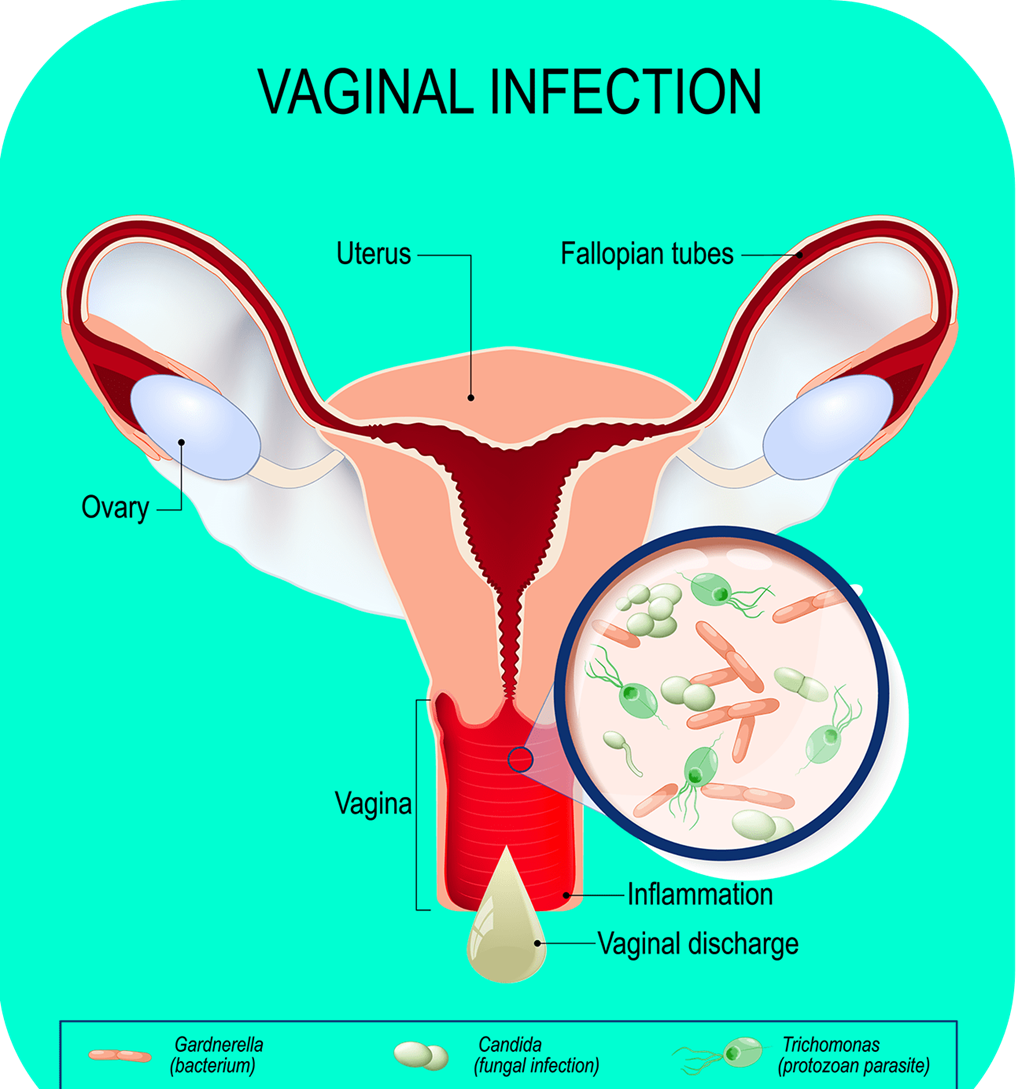A client with trichomoniasis is to receive metronidazole. What should the nurse instruct the client to avoid while taking this drug?
Caffeine
Chocolate
Nicotine
Alcohol
The Correct Answer is D
Choice A: Caffeine is not the correct answer because it does not interact with metronidazole. Caffeine is a stimulant that can increase alertness, energy, and heart rate. However, it has no effect on the effectiveness or side effects of metronidazole.
Choice B: Chocolate is not the correct answer because it does not interact with metronidazole. Chocolate is a food that contains caffeine, sugar, and fat. However, it has no effect on the effectiveness or side effects of metronidazole.
Choice C: Nicotine is not the correct answer because it does not interact with metronidazole. Nicotine is a substance that can be found in tobacco products, such as cigarettes, cigars, or chewing tobacco. However, it has no effect on the effectiveness or side effects of metronidazole.
Choice D: Alcohol is the correct answer because it interacts with metronidazole. Alcohol is a substance that can be found in beverages, such as beer, wine, or liquor. It can cause a severe reaction when combined with metronidazole, resulting in symptoms such as nausea, vomiting, headache, flushing, and palpitations. Therefore, the nurse should instruct the client to avoid alcohol while taking metronidazole.

Nursing Test Bank
Naxlex Comprehensive Predictor Exams
Related Questions
Correct Answer is C
Explanation
Choice A: Ask the client's English-speaking family member to translate. This action is not appropriate because it may compromise the accuracy and confidentiality of the information. The family member may not have sufficient medical knowledge or vocabulary to translate correctly or may omit or alter some details due to personal bias or embarrassment.
Choice B: Use a translation dictionary to reinforce the teaching. This action is not appropriate because it may be time-consuming and ineffective. The translation dictionary may not have all the relevant terms or phrases or may provide inaccurate or ambiguous translations. The nurse may also lose the client's attention or interest by relying on the dictionary.
Choice C: Seek assistance from a facility-approved interpreter. This action is appropriate because it ensures the quality and clarity of the communication. The facility-approved interpreter is a professional who has the skills and training to provide accurate and unbiased translation of the information. The interpreter can also facilitate the interaction and feedback between the nurse and the client.
Choice D: Ask an assistive personnel (AP) who speaks the client's language to serve as an interpreter. This action is not appropriate because it may violate the scope of practice and ethical standards of the AP. The AP may not have the qualifications or authority to provide interpretation services or may have a conflict of interest or role confusion with the client. The AP may also have other duties or responsibilities that may interfere with the interpretation process.

Correct Answer is C
Explanation
Choice A: Vaginal pH of 3 is not the correct answer because it is not a finding of bacterial vaginosis. Vaginal pH is a measure of how acidic or alkaline the vaginal environment is. A normal vaginal pH ranges from 3.8 to 4.5, which helps prevent infections by maintaining a balance of healthy bacteria (lactobacilli). Bacterial vaginosis can cause an increase in vaginal pH above 4.5, which allows harmful bacteria (anaerobes) to grow and cause symptoms.
Choice B: Cervical bleeding on contact is not the correct answer because it is not a finding of bacterial vaginosis. Cervical bleeding on contact is a sign of inflammation or injury to the cervix, which is the lower part of the uterus that connects to the vagina. It can be caused by various factors such as infection, trauma, or cancer. Bacterial vaginosis does not affect the cervix directly, but it can increase the risk of other infections or complications that may cause cervical bleeding.
Choice C: Fishy odor of discharge is the correct answer because it is a finding of bacterial vaginosis. The fishy odor of discharge is a characteristic symptom of bacterial vaginosis that occurs due to the breakdown of organic compounds (amines) by the anaerobic bacteria. The odor is usually more noticeable after sexual intercourse or during menstruation.
Choice D: Yellowish-green discharge is not the correct answer because it is not a finding of bacterial vaginosis. Yellowish-green discharge is a sign of infection or inflammation of the vagina or cervix, such as trichomoniasis, gonorrhea, or chlamydia. These infections can cause symptoms such as itching, burning, or pain in the genital area. Bacterial vaginosis usually causes a thin, gray-white, or milky discharge that does not cause irritation or discomfort.

Whether you are a student looking to ace your exams or a practicing nurse seeking to enhance your expertise , our nursing education contents will empower you with the confidence and competence to make a difference in the lives of patients and become a respected leader in the healthcare field.
Visit Naxlex, invest in your future and unlock endless possibilities with our unparalleled nursing education contents today
Report Wrong Answer on the Current Question
Do you disagree with the answer? If yes, what is your expected answer? Explain.
Kindly be descriptive with the issue you are facing.
